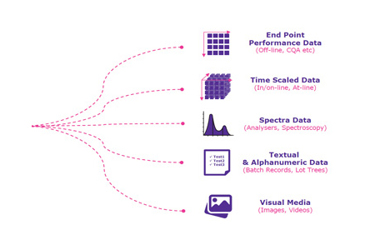The Evolution Of AI – How Artificial Intelligence Benefits Biopharma Industries
BY Hemant Garg, Product Manager Analytics and Phillippe Eberhard, IT Architect

Certainly, AI and machine learning approaches in the biopharmaceutical industry are in their early stages. One of the main challenges related to adoption of these technologies is the lack of guidelines in terms of GMP application.
It may be unclear if a proposed AI model will satisfy GMP requirements in addition to specific scientific validation criteria. The other challenge is collecting the diverse data sets from data silos, such as unit operations, real time sensors, and external data bases. While it is paramount to not only collect this large volume of data but must also be meaningful context so that AI and machine learning models can be trained to provide actionable insights.
With such an extensive set of data being gathered from myriad sources, companies will also need to effectively navigate that data to find correlations and insights within the AI-driven environment. AI-driven decision making necessitates a significant amount of real time data that is fully organized and contextualized. Success at this stage begins with automated data preparation, a task that has traditionally been manual. In addition to the need for improved connectivity through digitization of manual records, removing data silos that hinder knowledge sharing is another key imperative on the digitization journey.
Considering the complexity of bioprocessing combined with the industry’s inherent “data siloes”, this paper focuses on how companies might best use the power of smart data to leverage AI and drive additional insights.
Get unlimited access to:
Enter your credentials below to log in. Not yet a member of Advancing RNA? Subscribe today.
